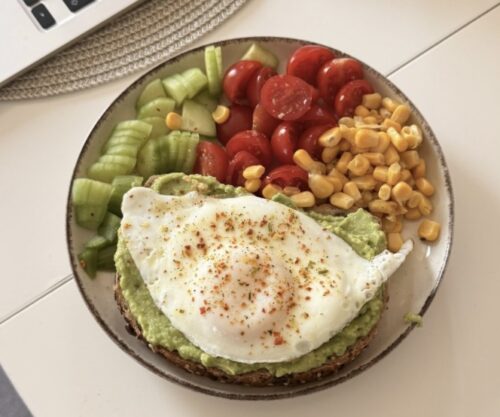
Looking after your heart isn’t just about what you add to your lifestyle – it’s just as much about what you leave out. While genetics play a role, everyday choices can make a big difference in lowering your risk of heart disease, stroke, and high blood pressure.
Here are some key things to avoid if you want to keep your heart strong.
Too much processed meat
Bacon, sausages, polony, and other processed meats are high in saturated fats and preservatives that can increase cholesterol and raise the risk of heart disease. Leaner proteins, like skinless chicken, fish, legumes, and nuts, are far better options for your long-term health.
Full-fat dairy products
While dairy can form part of a balanced diet, too much cream, cheese, and full-cream milk adds extra saturated fat. Swap these for low-fat or fat-free options where possible. You’ll still get the protein and calcium, without placing extra strain on your arteries.
Solid and tropical fats
Butter, lard, shortening, and oils like coconut or palm oil are best kept to a minimum. These fats are solid at room temperature and can raise LDL (bad) cholesterol levels. Instead, choose liquid plant oils such as olive, avocado, or sunflower oil.
Added sugar
Sugary drinks, sweets, and processed snacks may give you a short burst of energy, but over time they increase the risk of obesity, diabetes, and heart disease. They also cause spikes in blood sugar that can leave you feeling sluggish. Limit refined sugars, and opt for natural sweeteners like fruit, a drizzle of honey, or spices such as cinnamon.
Excess salt
High salt intake is closely linked to high blood pressure, which is a major risk factor for heart disease. Most salt doesn’t come from your saltshaker, but from processed and packaged foods. Read labels, cook more meals at home, and flavour dishes with herbs, garlic, and citrus instead.
Heavy drinking
Alcohol in excess is hard on the heart. It raises blood pressure and increases the risk of irregular heartbeat and stroke. If you drink, do so in moderation – and if you don’t drink, there’s no reason to start for the sake of heart health. Water, herbal teas, or sparkling water with a squeeze of lemon make excellent alternatives.Highly refined grains
White bread, cakes, pastries, and many processed cereals lack the fibre and nutrients of whole grains. Eating too many of these can cause blood sugar spikes and lead to weight gain. Rather choose oats, brown rice, quinoa, or wholewheat bread to keep your energy steady and your heart healthier.
Beyond food
What you eat matters, but so do your daily habits. Smoking, poor sleep, and a lack of physical activity all increase heart disease risk. Aim for at least 150 minutes of moderate exercise each week – whether that’s walking, swimming, or dancing – and make rest and stress management a priority.
A heart-healthy lifestyle isn’t about strict rules or going without. It’s about small, consistent choices – and learning which habits are best left behind. By avoiding the foods and behaviours that put pressure on your heart, you’ll be investing in more energy, resilience, and long-term wellbeing.
Compiled by Jade McGee
First published on Woman and Home
Also see: World Heart Rhythm Week: How to early detect arrhythmias




